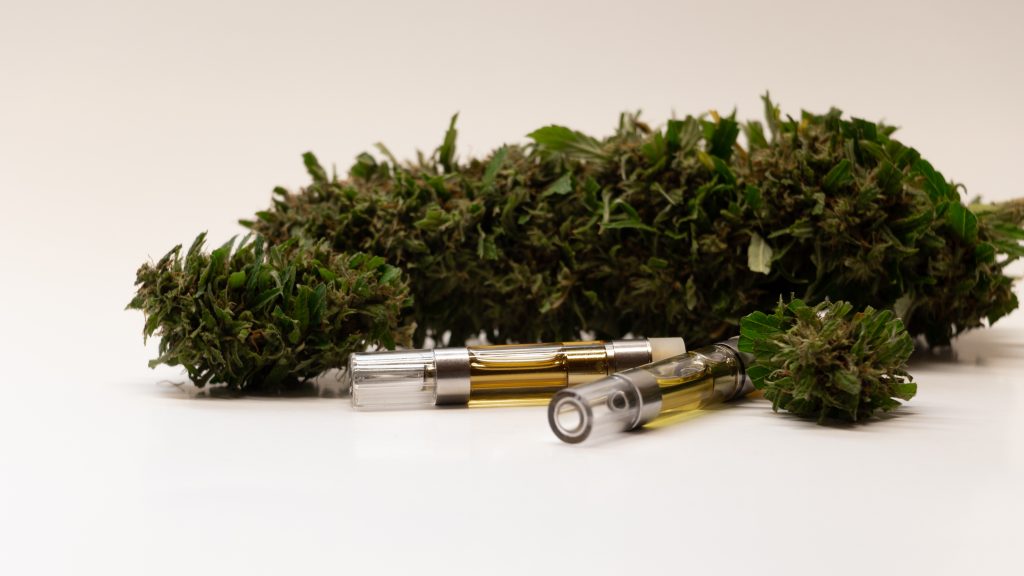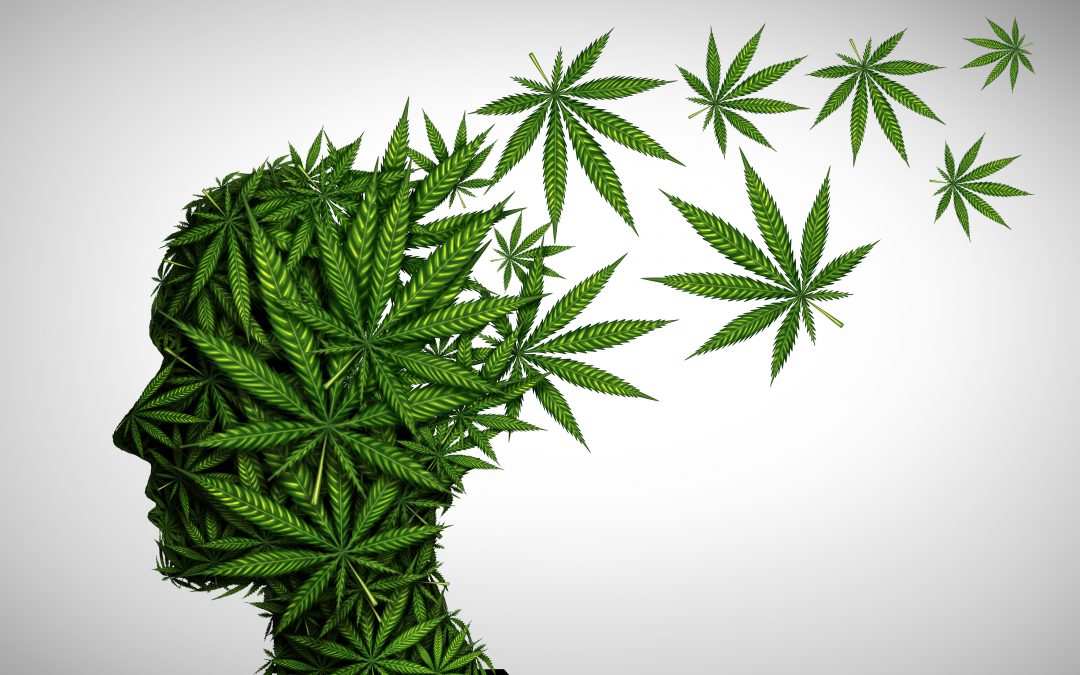Discover how your genetics can alert you to your risks for adverse events with THC.
As states continue to legalize cannabis for medical and recreational use, people are flocking to cannabis for its therapeutic effects. Currently, 12% of Americans and 15% of Canadians report using cannabis for either medical or nonmedical reasons.[1][2]
And these numbers are steadily rising.
The number of adults 65 years and older who report using cannabis has nearly doubled from 2015 to 2018, according to a recent study published in JAMA Internal Medicine.[3]
Among new users are groups including women, adults with high family incomes, and those who reported receiving mental health and chronic disease treatments.
“Cannabis use was very stigmatized in the past but now we have all these new laws passing about the medical use of cannabis, so people are curious to see if it is something that can be used to treat their chronic disease,” said Dr. Benjamin Han, a leading author of the study.
Cannabis therapy can help people suffering from anxiety, insomnia, post traumatic stress disorder, or a number of other disruptive disorders. It’s also used to help adults who suffer from serious medical conditions like chronic pain, multiple sclerosis, and symptoms associated with aggressive cancers.
But, while many people swear by the therapeutic effects of cannabis, you might find that cannabis gets you too high. In other words, you might experience adverse events with THC. This happens because THC is a psychoactive substance that interacts with your endocannabinoid system, which can lead to negative events like forgetfulness, impulsivity, or even hallucinations.
Adverse THC side effects can be strong enough to discourage you from using cannabis therapy altogether. Or, at the very least, adverse events can cause anxiety around choosing an optimal therapy product.
Don’t let adverse events with THC keep you from cannabis therapy. Instead, use science to help you manage adverse events and find the optimal cannabis experience for your therapeutic needs.
So, where do you start? Your DNA.

The science behind adverse THC side effects.
Approximately 31% of the population will experience some form of moderate to acute THC side effects.
Adverse events can often include:
- Aggression,
- Impulsivity,
- Psychomotor control impairment,
- Psychotomimetic effects (also known as symptoms of psychosis),
- Schizophrenia after chronic use,
- THC dependence, and
- Working memory impairment.
But THC side effects don’t occur at random. In fact, they’re quite predictable when you consider the science of genetics and endocompatibility.
Everyone is outfitted with their own unique set of genes that have both expressed and unexpressed components. These are determined by genetic parts called alleles (or variants). Under certain conditions, an unexpressed trait can be triggered and become an expressed trait. In other words, if you are predisposed to an adverse side effect of THC (like impulsivity or dependence), then taking THC can express the given adverse effect.
For example, nearly 53% of the general population has a CC genotype with an accompanying rs324420 marker. If you carry this genetic arrangement and take the wrong amount of THC, you could experience an adverse side effect of increased anxiety. This can manifest as an elevated heart rate, erratic breathing, or hyper alertness.
Key takeaway:
- Depending on your genetics, you may be predisposed to a particular behavior, impairment, or even disease. Given the right circumstances, the unexpressed gene (or predisposition) can become expressed.
- Knowing which adverse events you’re predisposed to will help you make smarter choices about your THC use and cannabis therapy.
Potential adverse events with THC.
Chances are you or someone you know has experienced at least one of the following THC side effects.
Aggression after THC use.
Everyone has different aggressive tendencies that depend on a host of factors including genetic makeup and environmental influence.
Serotonin is the most prominent neurotransmitter involved in aggressive behavior. Since the endocannabinoid system is closely connected to the serotonin system (and several other neurotransmitter systems), it’s possible that THC can influence aggression.[4]

Aggression after THC use is rare, and there is no scientific evidence that THC use alone causes aggression. There have been studies, however, that show an association between THC use and aggression, although these results have not always been replicated. Studies have also shown that aggression with THC use is more common in individuals who have aggressive tendencies without cannabis use. [5][6]
Impulsivity after THC use.
Impulsivity is the tendency to act prematurely without fully considering the consequences of a given choice. If you make choices quickly that you are prone to question or regret later, you may be acting impulsively.
Impulsive behavior is determined by a host of genetic, epigenetic, and environmental factors. It can be exacerbated by stimulant drugs and certain prescription medications, and it can be more common in people who suffer from post traumatic stress disorder or past traumas.
Genetically speaking, some people are more predisposed to impulsivity than others. For example, genetic variants in the DBH gene, which is responsible for metabolizing dopamine, can predispose you to impulsive behavior.[7]
Dopamine is a neurotransmitter involved in impulse behavior. Since THC can activate neurons that release dopamine, it’s possible that THC can influence impulsivity.
Psychomotor control impairment after THC use.
Psychomotor control is commonly referred to as coordination. It involves the careful alignment of both thinking and physical movement. You use psychomotor control in many everyday tasks, like driving, walking, and chewing.
While THC’s effect on psychomotor control can vary, it often slows control, which is why driving or operating heavy machinery under the influence of THC is highly dangerous.
Approximaltely 42% of the general population are predisposed to impairment in psychomotor control after THC use. This is due to the AKT gene that transmits dopamine, an important neurotransmitter involved in psychomotor functioning. Variations in the AKT protein may explain why some individuals are more susceptible to psychomotor impairment than others.[8]

Psychotomimetic effects with THC use.
Psychotomimetic effects are symptoms of psychosis. They’re usually characterized by positive symptoms like delusions or hallucinations.
Interestingly, as much as 50% of the general population is predisposed to experiencing psychosis-like symptoms. These experiences aren’t as widely reported with THC as other common THC side effects, likely because the general population doesn’t know how to identify or characterize psychotomimetic symptoms.
Drugs like hallucinogens and stimulants can also elicit psychotomimetic effects. These effects are related to increased dopamine signaling in a part of the brain called the striatum. Though not true for all drugs, psychotomimetic effects caused by THC use are not permanent and will eventually wear off as THC is metabolized and dopamine stores return to normal.
Usually, experiencing psychotomimetic effects is dependent on THC dose. At a high enough dose, virtually everyone will experience these effects. Some people, however, are more predisposed to psychotomimetic effects than others, since unique genetic variants are responsible for signalling dopamine in the striatum.[9]
Schizophrenia after chronic THC use.
Schizophrenia is a psychiatric condition associated with breaks in reality. Symptoms often include hallucinations, delusions, emotional withdrawal, and memory impairments. They usually begin in adolescence or early adulthood.
It’s important to note that there is no scientific evidence that suggests THC causes schizophrenia. There are scientific studies, however, that prove a correlation between chronic THC use and development of some psychotic disorders. There are many factors that contribute to the development of schizophrenia, including genetic and environmental factors.
Even if you are genetically predisposed to a psychotic disorder, consuming THC does not in any way guarantee that you’ll develop schizophrenia. That being said, THC use is riskiest in adolescence, since the brain is still developing. The key to safe THC use is to be aware of your genetic predispositions and dose safely.[10]
THC dependence.
Most people who use cannabis don’t develop THC dependence. Genetic variants, though, can make some people more predisposed to dependence than others. This is true for a number of substances including opioids, stimulants, and alcohol.
When THC becomes a priority over important life events like school, work, or participating in social activities, you may be at risk for developing dependence. THC dependence may occur from repeated or chronic use over a significant period of time.
Genetic variation in endocannabinoid receptors, also known as CB1 or CNR1, may predispose individuals to substance dependence.
Working memory impairment.
Working memory requires the brain to temporarily store and use information. It’s used in all kinds of daily tasks. For example, working memory is used to perform mental arithmetic and read. The prefrontal cortex is the primary part of the brain involved in working memory, although there are other parts of the brain involved, too.

In approximately 50% of the general population, genetic variants predispose folks to working memory impairment. When THC is involved, factors like genetics and tolerance can contribute to side effects.
If THC is used chronically, it can lead to decreased cognitive abilities, even if you’re not intoxicated. This, however, is not permanent and cognitive abilities can be fully restored after chronic use is stopped.[11]
Your genes help identify your predispositions to adverse THC side effects.
Cannabis and cannabinoid products may be able to help you with anxiety, depression, chronic pain, sleep disturbances, or serious medical conditions.
You don’t have to give up cannabis therapy for wellness or recreation because of adverse THC side effects. With the right information, adverse events with THC are totally manageable.
Take a DNA test and uncover your unique endocompatibility and genetic predispositions for adverse events. When you know your predispositions, you can find cannabinoid and terpene formulations to manage your symptoms and optimize your experience.
Download your free Endo·Decoded Report sample here.
Not sure if you’ve experienced adverse events from cannabinoids in the past? Take this quick 10 question quiz to determine if you may be genetically predisposed to adverse events with THC.
Endocanna Health is a biotechnology company committed to helping consumers find the right cannabinoid products to enhance their health and wellness. Using our breakthrough DNA test, Endo·dna, we empower you to take control of your health with access to over 55 different health reports that include suggestions for the best CBD and cannabis products that match your unique genetic code. Visit us here to find out more!





